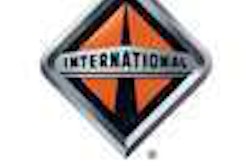Volvo Trucks North America and Mack Trucks applauded the Environmental Protection Agency’s commitment to implementing its 2010 emissions regulations as planned, characterizing recent efforts to seek 11th-hour changes as misleading and unnecessary. Volvo Trucks also emphasized the benefits of its EPA’10 technology choice, selective catalytic reduction (SCR), for the customer and the environment.
“EPA has clearly stated that it has no intention of changing the 2010 timetable, and it’s counter-productive and misleading to suggest that the agency might change its mind in the 11th hour,” said Per Carlsson, president and CEO of Volvo Trucks North America. “Our focus should be on moving forward – making the industry’s transition to 2010 as smooth, efficient and uneventful as possible. That’s the only way to provide a significant benefit both to customers and the environment.”
“Volvo Trucks is fully prepared to meet these regulations on time, and with the same engine we’re offering today,” Carlsson added. “Beyond allowing us to deliver the cleanest diesel engines in the world, our proven SCR technology will provide customers with significantly improved fuel economy.”
“The development and testing of Mack’s SCR solution for 2010 is in advanced stages and we are confident in our engines’ enhanced performance, emission reduction and fuel savings,” added Dennis Slagle, president and CEO of Mack Trucks. “We found the recent dialogue around the proposal to delay implementation of 2010 to be an unproductive distraction and often misleading. We are anxious to reach out and provide customers with as much information as possible about SCR. For that reason, we have developed a special web site (www.mackscr.com) that includes a discussion forum called “Talking SCR” to help customers learn more about an already widely utilized and accepted global technology.”
Mack specifically addressed questions about the performance of SCR in very warm or cold regions. “It’s already being successfully used around the world by hundreds of thousands of trucks every day, including those in extreme operating conditions,” said Slagle. “And it clearly works here in North America, as our test trucks have been demonstrating.”
All but one manufacturer serving the North American market are committed to using SCR to achieve the near-zero emissions required by the EPA’10 regulations. SCR is the dominant emissions technology in the European market as well, and the only technology currently being used to meet the most recent emissions requirement in Japan. The only alternative proposed for EPA’10 is massive exhaust gas recirculation (MEGR).
“Our testing and real-world experience demonstrates SCR is the optimal solution,” said Carlsson. “More than half a million trucks use SCR every day in Europe alone, from the Arctic Circle to Turkey, so we know it works in any climate and condition.”
A large coalition of industry organizations and suppliers has been working to establish the North American distribution network for the diesel exhaust fluid (DEF) used in SCR. A similar network was readily established in Europe. A recent industry forum in the U.S. put the cost of DEF at $2.70 per gallon; only two or three gallons of DEF are needed for every 100 gallons of diesel.
The EPA’s commitment to the existing timetable is also important in safeguarding the development of a distribution network for the diesel exhaust fluid (DEF) used in SCR. A broad industry coalition has been hard at work to establish this infrastructure, and significant investments have already been made in building this network and supplying it with necessary distribution equipment. Mack countered claims that DEF would be extremely expensive as well. Recent industry forums have placed the cost of a gallon of DEF at around $2.70, and Mack estimates only two or three gallons of DEF will be needed per every 100 gallons of diesel consumed.









